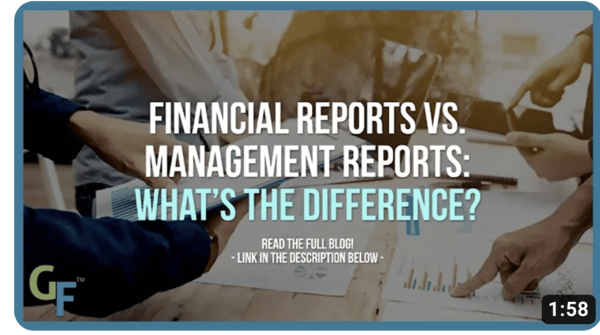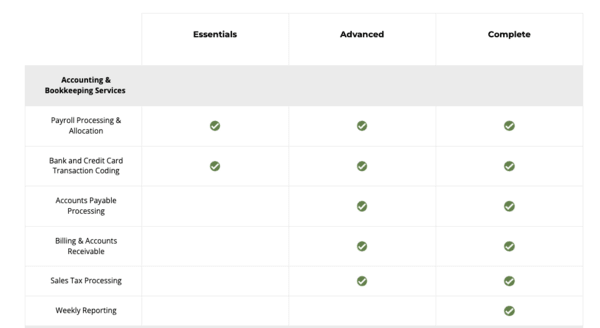7 min read

The Bank of America Mid-Sized Business Owners Report [1] just came out with a whole host of information on trends among business owners, their management, and the plans they have for their $5 to $50 million dollar companies in the coming year.
|
Key Takeaways
|
Despite the economic challenges presented by inflation, rising interest rates, and hiring difficulties, 75% of mid-sized business owners still expect their revenue to increase, 75% plan to grow their businesses, 71% plan to hire additional employees, and 67% expect the U.S. economy to improve over the next 12 months.
Additionally, many of these business owners plan to make other moves in the coming year. For example:
- 90% plan to obtain some form of funding through credit cards, bank loans, personal savings, personal credit cards, or venture capitalists.
- 54% of those planning to apply for a loan plan to invest the money in new technology, equipment, or marketing and promotions.
- Many business owners are planning operational changes, as well, such as increasing prices (45%), re-evaluating their spending and cash flow (37%), and cutting costs (33%)
- During the last year, 90% optimized their business operations with digital strategies to save time, increase customer satisfaction, manage cash flow, improve organization, and increase customer reach. Nearly as many (87%) plan to use automation and AI to differentiate themselves from competitors, help with hiring, and improve their bookkeeping and payroll processes.
- 88% recognize the growing threat of cybersecurity risks and are investing in better digital security systems.
- In response to The Great Resignation, mid-sized business owners are investing more in their people by increasing pay (43%), increasing PTO (40%), improving retirement benefits (36%), and creating new employee resource and training groups (34%).
- 78% say that these employee-centric actions have improved their retention rates.
Should Your SME Implement These Kinds of Changes?
Change in business can be healthy, and the ability to adapt and pivot in anticipation of or response to market and economic changes is often necessary for survival. The question is whether or not you understand when and how your business should make changes.
Thankfully, you don't have to rely on your intuition or gut feelings about the industry, economy, or market because you have your business's financial data to inform when and how it should change. You can start evaluating your business's financial health as well as the success of your business strategies by routinely reading your financial reports and management reports.
Read More: Outsourced Accounting Costs for Mid-Market Companies
What Is Financial Reporting?
Financial reporting is a function of a business's bookkeeping and accounting system that collects, organizes, and reports financial data from a specific period of time, using a well-defined reporting method, in several different forms which are known as financial reports.
While financial reports can be used internally to evaluate a company's historical financial performance, they primarily exist for external purposes such as compliance, communication with stakeholders, and obtaining funding or financing through investors, creditors, bankers, and suppliers.
Since financial reports are generated using specific rules, methods, and accounting standards they create a simple way for individuals outside of the business to evaluate its financial health.
Common Types of Financial Reports
A business's financial reports include the balance sheet, income statement (profit and loss statement), and statement of cash flow.
Are Management Reports Different From Financial Reports?
Management reports differ greatly from financial reports. Management reports are primarily used internally to assess the current performance and health of a business in addition to forecasting the future performance and health of a business. Business leaders use management reports to inform the decisions they make and strategies they devise to continuously improve the business by increasing operational efficiency, productivity, and profits. Additionally, the methods used to generate these reports are not regulated by any body of accounting standards the way that financial reports are.
Management reports include metrics, key performance indicators, and charts such as budget vs. actuals, profit and loss by class, cash flow forecasts, and trailing twelve-month charts.
Most business executives are familiar with the basic financial reports they should be getting monthly…

…..but many are less familiar with the type of management reports available that could help their businesses increase profitability and profitability.
Financial Reports Best Practices
Automate Manual Processes
Automation is truly the main key to successful financial reporting practices. It not only saves time and money but also reduces errors and improves timeliness. As a result, automated processes help you improve compliance while producing more reliable, timely, and accurate financial reports. So, you can be sure that the data you're relying on should be relied on.
Pick the Right Financial Management Software
Automation is the key to financial reporting, and financial management software is the key to automation. The right software solution will help your business automate and streamline the majority of its bookkeeping and accounting processes. Having the right software in place makes it possible to view real-time financial data, reports, and metrics to help you run your business.
In an SME, the software solution that's right for you will largely depend on your size, transaction volume, and other needs. You want to be sure to choose a solution that's affordable for your business while also giving you room to grow with ample scalability. For most smaller-sized businesses, QuickBooks® can offer a great solution. For medium businesses or fast-growing businesses, Sage Intacct® might be the better option, even though it is more expensive.
Read More: How Switching to Sage Intacct® Can Set Your Business Up for Growth
Use Fully Integrated Applications
Both QuickBooks and Sage Intacct offer extensive, full integrations with third-party applications. You should absolutely take advantage of these integrations because they will further expand your financial and management reporting capabilities to encompass non-financial metrics that take your data to the next level, allowing you to assess the performance and improve the management of just about every aspect of your business.
Follow the GAAP Financial Accounting Standards
The Generally Accepted Accounting Principles are a set of well-established rules and standards that provide direction on how to set up your accounting processes, policies, and procedures. Organizing your bookkeeping and accounting system around the GAAP standards ensures your financial reporting is compliant, audit-ready, and tax-ready.
Integrated Reporting and the Triple Bottom Line
Integrated reporting is gaining popularity, especially in annual reports and internal reporting intended for stakeholders. This form of reporting includes both financial and non-financial data to present a comprehensive overview of the business's impact. In addition to your financial statements, you can include:
- Commentary from management
- Business strategies
- Corporate communication
- Governance reporting
- Environmental impact data
- Social impact data
- Market and industry changes
- New opportunities and emerging risks
The triple bottom line is a more comprehensive approach to a traditional income statement, as it evaluates the total impact of a business by looking at success in terms of the three Ps, which are people, planet, and profits. This idea has officially been around since 1994 when entrepreneur and author John Elking originally coined the term [2]. The pressure on CFOs to incorporate data on environmental, social, and governance (ESG) factors (a similar concept) in their financial reports is growing. In 2022, 89% of investors (up from 84% in 2021) considered ESG as a part of their investment approach [3].
Outsource Your Back Office
As your SME grows, your back office needs to be readily adaptable, agile, and scalable. This can be hard to achieve with a back office that's fully operating in-house. Outsourcing this non-core competency can give your business a significant advantage, as outsourcing saves time, money, and other resources while also improving the function of your back office with a team of experts and robust technology.
Scalable Accounting Services: Build an accounting package that grows with your business.
Get a free, customized quote today!
Take Your SME Leadership to the Next Level With Reliable Reporting and Actionable Financial Insights
Streamlining and automating your bookkeeping and accounting processes will help you get a handle on your financial reporting and management reporting processes so that you never need to worry about compliance and - more importantly - you can improve your mid-market company leadership skills. With reliable and up-to-date financial data at your fingertips, you can make the decisions and investments that will help your business navigate, succeed, and grow through any economic climate - no matter how dire it may seem.
[3] https://www.bankrate.com/investing/esg-investing-statistics/#popularity-growth

.png?width=563&height=144&name=New%20GF%20Logo%20(37).png)


